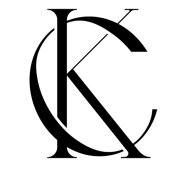Best Antitrust Lawyers in Oslo
Share your needs with us, get contacted by law firms.
Free. Takes 2 min.
List of the best lawyers in Oslo, Norway
About Antitrust Law in Oslo, Norway
Antitrust law, known as competition law in many jurisdictions outside the United States, aims to maintain market competition by regulating anti-competitive conduct by companies. In Oslo, Norway, antitrust law is influenced by both national legislation and European Union regulations. The Norwegian Competition Authority (Konkurransetilsynet) is the primary body responsible for enforcing antitrust laws. These laws are designed to prevent monopolies, cartels, and other business practices that could harm consumers or abuse market power.
Why You May Need a Lawyer
There are several situations where you might require legal assistance in the field of antitrust. Businesses involved in mergers or acquisitions need to ensure they are compliant with antitrust regulations to avoid penalties. Additionally, companies accused of engaging in anti-competitive practices such as price-fixing, market division, or abuse of dominant position will require legal representation to defend their case. Lastly, smaller businesses looking to understand how antitrust laws affect them, especially if they suspect larger competitors of anti-competitive behavior, may also benefit from consulting a lawyer.
Local Laws Overview
Norway's approach to antitrust is aligned with European Union standards. Some key aspects of local antitrust laws include:
- Prohibition of Cartels: Agreements and practices between companies which have the effect of restricting competition are prohibited. Penalties can be severe, including significant fines and reputational damage.
- Merger Control: The Norwegian Competition Authority reviews mergers and acquisitions to prevent market dominance. Companies must often get clearance before proceeding with such deals.
- Abuse of Dominant Position: Firms holding a dominant market position are prohibited from engaging in practices that could exploit or exclude competitors unlawfully.
- State Aid: Certain kinds of state aid are prohibited if they distort competition and affect trade within the European Economic Area (EEA).
Frequently Asked Questions
What is the role of the Norwegian Competition Authority?
The Norwegian Competition Authority (Konkurransetilsynet) is responsible for enforcing Norway's competition laws. They investigate anti-competitive practices, review mergers and acquisitions, and ensure compliance with regulations.
What types of conduct are considered anti-competitive?
Anti-competitive conduct includes price-fixing, market sharing, limiting production, and abuse of dominant position, among other practices that restrict competition and harm consumers.
What penalties might a company face for violating antitrust laws?
Penalties for violating antitrust laws can include substantial fines, orders to cease and desist from the offending conduct, and in severe cases, criminal charges against company executives.
How does merger control work in Norway?
Companies planning mergers or acquisitions must notify the Norwegian Competition Authority if the deal meets specific financial thresholds. The Authority assesses whether the merger would significantly impede effective competition.
What is meant by 'abuse of dominant position'?
Abuse of dominant position refers to a company using its significant market power to engage in unfair practices that harm competitors or consumers, such as predatory pricing or exclusive dealing arrangements.
How can small businesses protect themselves from anti-competitive practices?
Small businesses can report suspected anti-competitive behavior to the Norwegian Competition Authority. Legal consultation can also help understand rights and form strategies against larger competitors engaging in unfair practices.
Are there any exemptions to antitrust laws?
Certain agreements may be exempted from antitrust laws if they promote economic efficiency and consumer benefits outweigh any negative impact on competition. These exemptions are closely scrutinized.
Can individuals report anti-competitive behavior?
Yes, individuals can report suspected anti-competitive practices to the Norwegian Competition Authority. Whistleblowers may also receive certain protections under Norwegian law.
How does EU competition law affect businesses in Norway?
As part of the European Economic Area (EEA), Norway is subject to many EU competition laws. Norwegian businesses must comply with both national and EU regulations.
What legal steps should a business take if accused of anti-competitive behavior?
If accused of anti-competitive behavior, a business should immediately consult with an antitrust lawyer to review the allegations, prepare a defense, and engage with the Norwegian Competition Authority or the courts as necessary.
Additional Resources
For further assistance, consider these resources:
- Norwegian Competition Authority (Konkurransetilsynet): The primary body for enforcement of competition law in Norway.
- European Commission - Competition: Information on EU competition laws which impact businesses in Norway.
- Local Antitrust Lawyers: Various law firms specialize in Norwegian and EU competition law.
- Business Organizations: Entities like the Confederation of Norwegian Enterprise (NHO) offer resources on compliance and best practices.
Next Steps
If you need legal assistance in antitrust matters, here are the steps you should follow:
- Identify Your Needs: Determine whether you need help with compliance, defense against accusations, or understanding antitrust laws.
- Research Lawyers: Look for legal professionals or firms in Oslo specializing in antitrust law.
- Prepare Documentation: Gather all relevant documents and information related to your situation. This could include business contracts, correspondence, and any notices from regulatory bodies.
- Consultation: Schedule a consultation with a lawyer to discuss your needs, understand your legal standing, and develop a strategy.
- Follow Legal Advice: Work closely with your lawyer to ensure compliance with regulations or to prepare a defense against any claims.
By carefully navigating antitrust laws and seeking professional advice, you can protect your business and ensure fair competition within your market.
Lawzana helps you find the best lawyers and law firms in Oslo through a curated and pre-screened list of qualified legal professionals. Our platform offers rankings and detailed profiles of attorneys and law firms, allowing you to compare based on practice areas, including Antitrust, experience, and client feedback.
Each profile includes a description of the firm's areas of practice, client reviews, team members and partners, year of establishment, spoken languages, office locations, contact information, social media presence, and any published articles or resources. Most firms on our platform speak English and are experienced in both local and international legal matters.
Get a quote from top-rated law firms in Oslo, Norway — quickly, securely, and without unnecessary hassle.
Disclaimer:
The information provided on this page is for general informational purposes only and does not constitute legal advice. While we strive to ensure the accuracy and relevance of the content, legal information may change over time, and interpretations of the law can vary. You should always consult with a qualified legal professional for advice specific to your situation.
We disclaim all liability for actions taken or not taken based on the content of this page. If you believe any information is incorrect or outdated, please contact us, and we will review and update it where appropriate.















